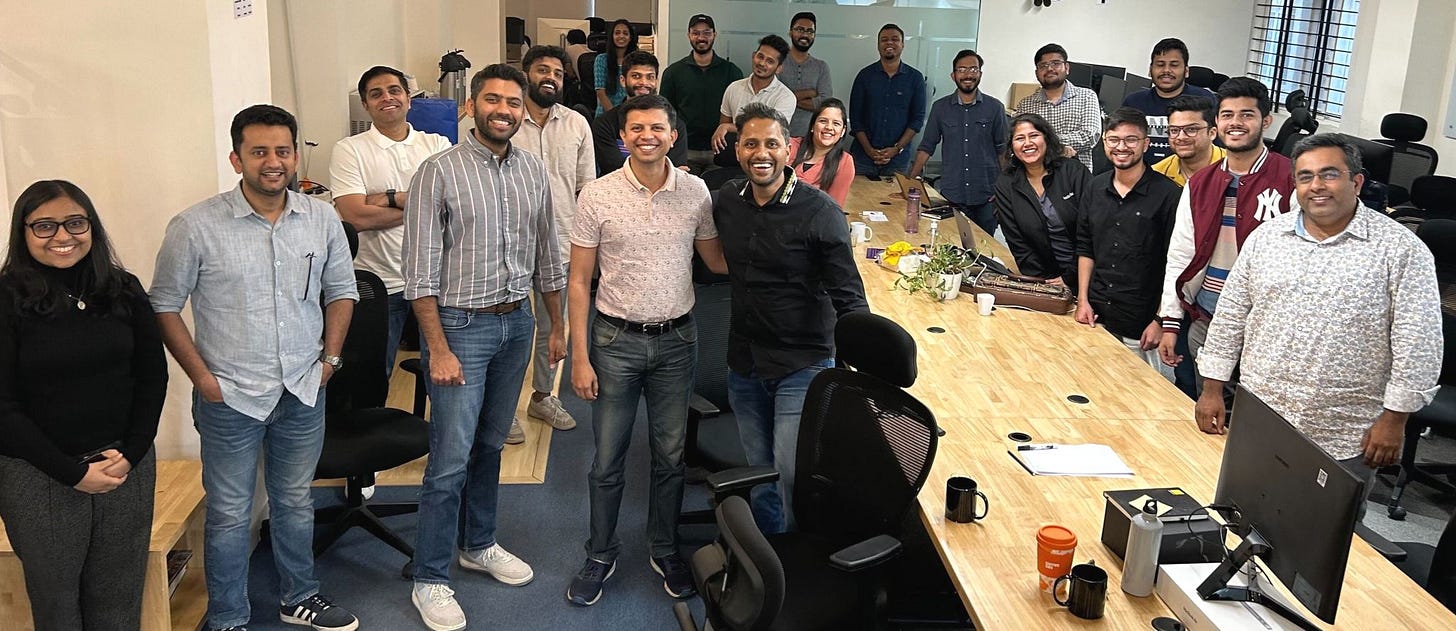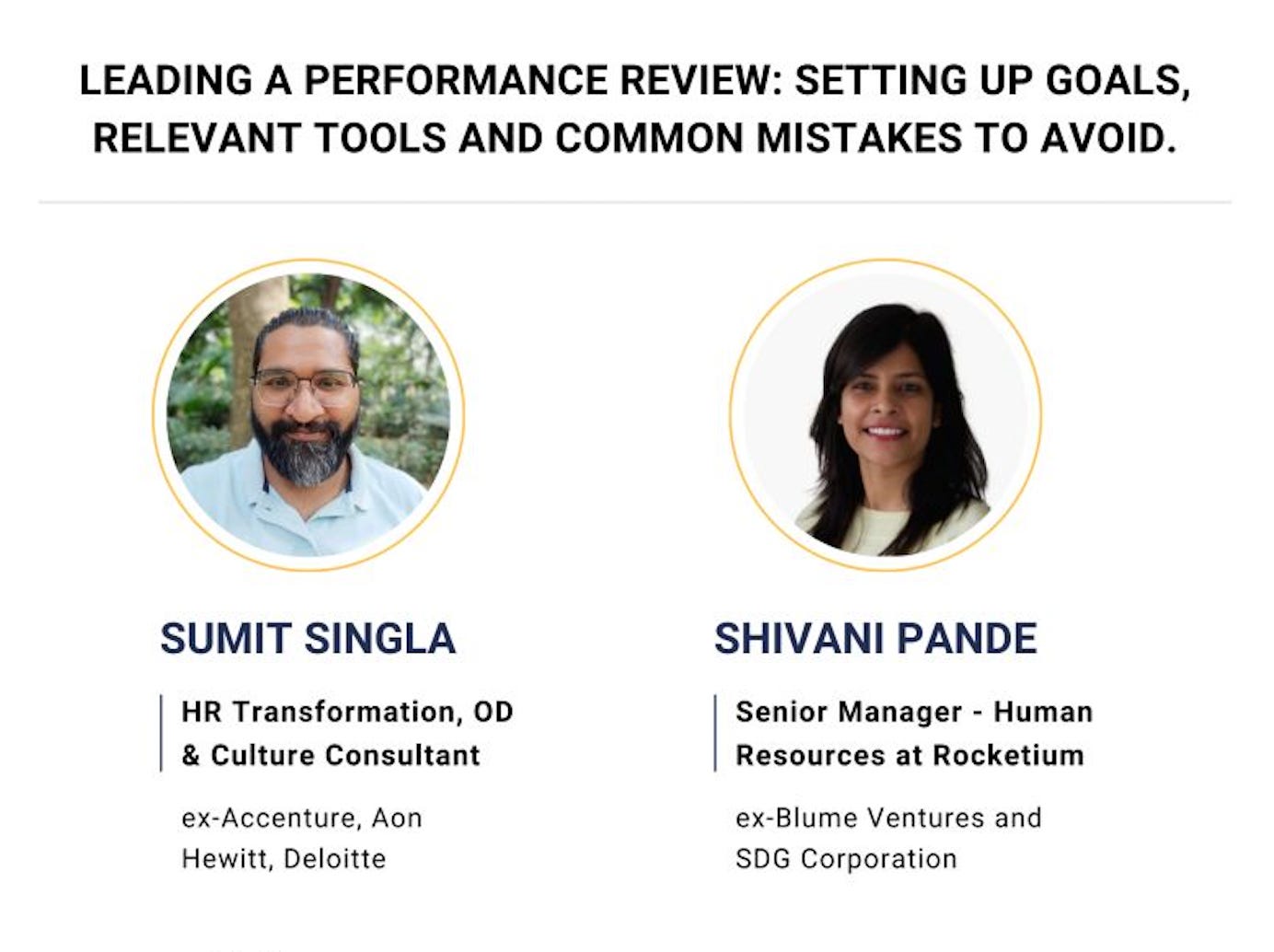2023 is all about GOING BIG! 🚀
Here is how we kicked-off the first month of the year at Rocketium.
Go big or go home (Go! Go!)…. Finding yourself singing to the tune from 2016? Yeah, it is playing in the background as we write this. 🎶
Except, we are saying NO to every alternate path that takes us away from focussing on anything less than going big. The first step in the direction was a Dev Hackathon and the Business Kick-off for 2023!
The theme for our year’s first Dev Hackathon was a #NoBox approach. This meant, that the groups were free to choose and build anything of their interest without being bound by any rules. The idea was to not only think out of the box but also believe that there is no box. 💪🏽
The Business kick-off on the other hand was a successful start for our marketing, sales, and customer success teams, of coming into alignment with their plan towards going big. The teams split into micro-groups and also participated in collaborative exercises like learning the art of storytelling, bringing innovation in design, leading with an enterprise narrative, and more..
Stitching small milestones for large wins - with Vijay Rayapati (Founder & CEO, AtomicWork) 🗻
How often do we have an opportunity to meet real people whose stories inspire us into believing that taking risks today pays back tomorrow?
In the January session of Rocketium’s Blue Sky Hour, we had a chance to interact with Vijay Rayapati (Founder & CEO, Atomic work) and learn from his mindset journey of building multiple startups. Vijay is a technology enthusiast turned entrepreneur and business leader, who sold is last company to the multi-million dollar Nutanix. In his conversation with our team, Vijay shared how he went about practising a growth mindset in regards to self, team, and community.
Here are a few snippets from the session -
Vijay believes that if you want to achieve big goals, make it a point to share them with your circle. This could mean talking about them with your immediate family members, friends, or even colleagues. Sharing the word puts you into a position of accountability and you do everything in your capacity to achieve those goals.
You will always be surrounded by three groups of people. First, who choose to work with you because they whole-heartedly believe in you and your vision. Second, who are with you because you pay them well and this value of reward keeps them going. Third, who do not agree with your style of working and will always have complaints regardless of what you change. The first kind are the ones you have to keep close and keep rooting for.
It is a non-negotiable to build relationships with other teams. If you’re a developer you have to be on good terms with the marketers, if you’re a designer you have to be on good terms with the product folks. These relationships help you and your function grow faster and better. Even building close-knit relationships with your customers goes a long way in them becoming your backbone while pitching to new prospects.
‘Emotional Inclusion’ for Managers 🫂
For managers to take charge of the well-being of their teams, it starts with acknowledging their own emotions first. In collaboration with Serein Inc., our managers underwent a session to learn about the elements of well-being and how we can identify signs of stress and burnout among their teams.
In this session, we learned -
Diversity in a team also includes the diversity of emotions. There will always be a mix of folks feeling happy, sad, angry, anxious, grateful, and so much more. This makes it all the more important for the managers to be mindful of how they interact with different people. Each person needs to be approached differently.
Our feelings impact the way we treat others. If we have unresolved conflicts within our mind, we will end up being unintentionally hard on others eventually making them feel devalued. Hence, it is imperative for managers to keep a check on their own emotions and adopt methods that help them destress.
Prefer asking open ended questions in 1-on-1s. This helps in giving the team member an opportunity to share detailed responses. For e.g. instead of asking “How are you doing?”, ask pointed questions like “Is there something that has been stressing you out?”, “What has been the most energising for you in the last few weeks?”
Look for the signs of burnout. This could include unexpected drop in their performance, fatigue, consistent sickness, argumentative behaviour, etc.
Acing your ‘Performance Management’ strategy 📈
It is that time of the year! Forms are rolled out, benchmarks are reviewed, ratings are announced, and often a roller coaster of emotions is experienced across team members. 🙂
In a recent virtual master class on 19th Jan’23 in collaboration with The Shape of Work community by Springworks, our Human Resources Lead Shivani Pande along side Sumit Singla (HR & OD Consultant) shared the nuances of setting up a performance management system, relevant tools, and common mistakes to avoid.
Some common takeaways from the session included -
If you’re an early stage startup or a team that is just getting started with setting up a performance management system, be agile with your process. Getting driven away by the jargons used by large organisations may not work the best in your favour. Be open to experiment with the models of performance reviewing until you see a higher success.
Do not fret too much about implementing tools/tech for your process. Choose what works the simplest for you while getting started. You’re not missing out on anything if you choose to go with Google Sheets or Excel in your early stages.
Some of the most common mistakes that the companies make while setting up a performance management system are -
Leaving goal setting to the last minute. In many cases, Q1 is almost over by the time goals are finalised which leaves little to no time for team members to absorb and start executing.
Not giving enough feedback. Being too nice and not calling out underperformance with actionable points for what should be done differently. As Sumit quotes, this leads to people starting to lose faith in the performance management system.
Being hesitant towards making pivots in your performance review process. As a process that is developed to support the growth of team members, organisations often forget to involve the participants while designing the process.
Not reassuring team members about how their KPIs (key performance indicators) are going to change with respect to the change in mid-term changes in business direction.
Not sensitising and training the new managers about the nuances of your performance reviews and management process.
If you would like to learn more about Rocketium’s performance philosophy, read here.
Learn more about Rocketium’s team culture on culture.rocketium.com
Check out the career opportunities with us on careers.rocketium.com






